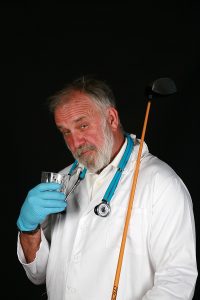If you represented the hospital in which this doctor worked and was called by the prospective employer of this doctor for an employment verification – how would you respond?
I would like to first discuss the Tort of Negligent Referral on the part of a previous employer in general. And then provide a summary of an individual who was a surgeon and was found to be using drugs while performing surgery and had a suspended license.
In a prior blog post, we present the Tort of Negligent Referral and discuss its ramifications against a prior employer that does not present truthful facts surrounding the previous employee’s behavior.
You, as a prospective employer, call a prior employer and tell the prior employer you are thinking of hiring the person for a position which would put that person in a similar position. The prior employer has an obligation to inform you of the truthful factual circumstances of that person’s resignation. If the prior employer does not disclose the truthful, factual information surrounding that person’s separation from employment, the prior employer could be held liable for the Tort of Negligent Referral if, in the case below, the doctor continues using drugs and harms a third party.
And to those employers who do not think prior employment verification is worthwhile, here is an interesting fact.
Courts are increasingly intolerant of companies unwilling to communicate truthful and factual information about former employees. The courts are losing patience with employers concerned only with their own liability at the expense of society’s need to have access to reasonable information which prospective employers need to conduct business. This is particularly true if the former employee exhibited dangerous and aggressive behavior.
So let’s visit the situation of a Urologist deemed ‘threat to public welfare’ after allegedly using cocaine during surgery, ‘impaired’ during prostate biopsy
A Texas doctor was accused of using drugs while performing delicate surgery on his patients — and even though his license was suspended, he could still get it back.
Nathan Starke, 39, was a urologist at Houston Methodist hospital in Houston, Texas, when he was suspected of using drugs during surgery. According to the Texas Medical Board, Starke “participated in several surgeries in August and September of 2024 while appearing impaired.” He was suspended on Sept. 6 and ordered to undergo drug testing. In October, he tested positive for cocaine.
Starke was arrested twice — in 2007 and 2017 — for driving while intoxicated.
And now I leave you with one more question. How would you react if this doctor performed a surgery on you or a loved one and you were told the current employer hospital didn’t bother to call the previous employer hospital to obtain an employment verification?
James P. Randisi, President of Randisi & Associates, Inc., has been helping employers protect their clients, workforce and reputation through implementation of employment screening and drug testing programs since 1999. This post does not constitute legal advice. Randisi & Associates, Inc. is not a law firm. Always contact competent employment legal counsel. To learn more about the rights of employees who test positive for marijuana, Mr. Randisi can be contacted by phone at 410.494.0232 or Email: info@randisiandassociates.com or the website at Randisiandasso



